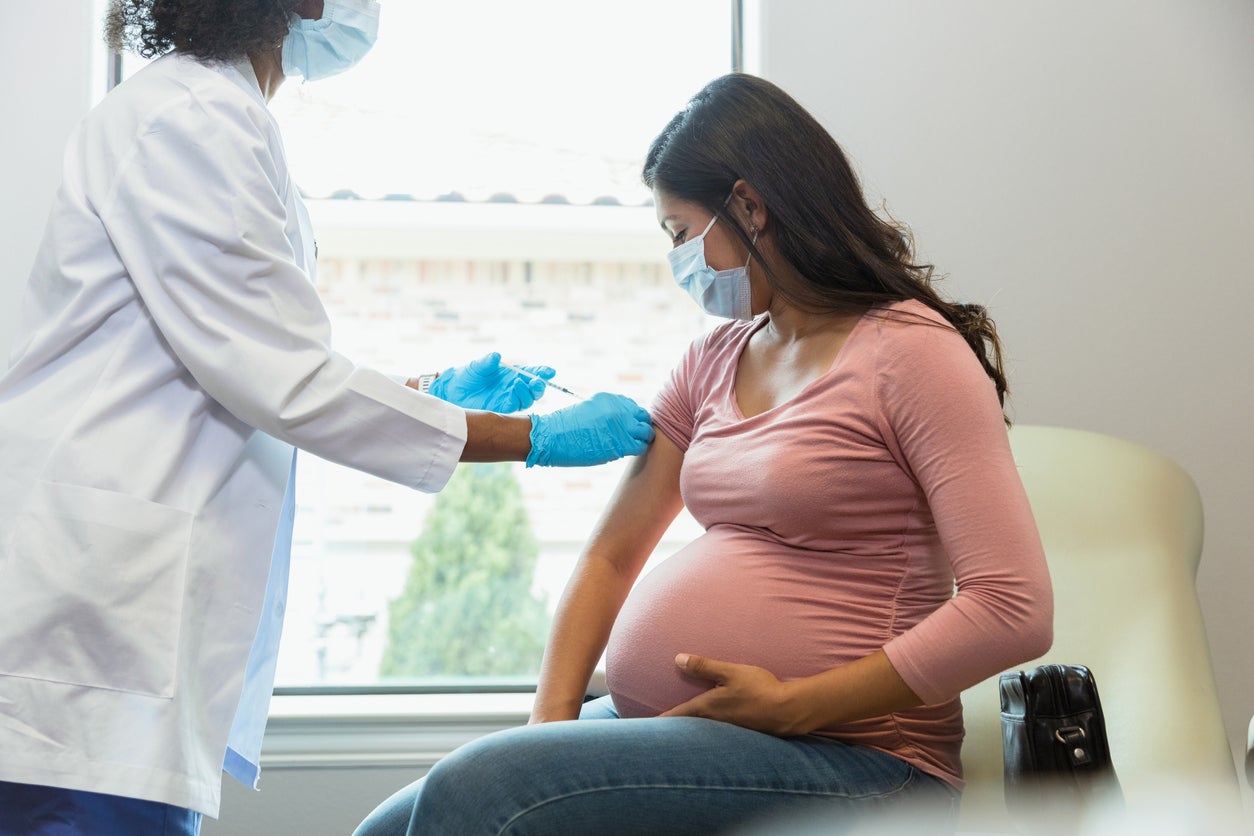Pregnant women told to get vaccinated amid spike in suspected whooping cough cases
Official figures show doctors reported some 716 suspected cases between July and November

Your support helps us to tell the story
From reproductive rights to climate change to Big Tech, The Independent is on the ground when the story is developing. Whether it's investigating the financials of Elon Musk's pro-Trump PAC or producing our latest documentary, 'The A Word', which shines a light on the American women fighting for reproductive rights, we know how important it is to parse out the facts from the messaging.
At such a critical moment in US history, we need reporters on the ground. Your donation allows us to keep sending journalists to speak to both sides of the story.
The Independent is trusted by Americans across the entire political spectrum. And unlike many other quality news outlets, we choose not to lock Americans out of our reporting and analysis with paywalls. We believe quality journalism should be available to everyone, paid for by those who can afford it.
Your support makes all the difference.Pregnant women have been urged to get vaccinated following a spike in suspected whooping cough cases in England and Wales.
Official figures show doctors reported some 716 suspected cases between July and November - up from 217 in the previous period last year.
The UK Health Security Agency (UKHSA) is notified by local authorities and health protection teams when medical practitioners see a patient they believe has the disease.
Not all suspected cases are confirmed as whooping cough when they are sent to labs for testing.
Whooping cough, or pertussis, is a bacterial infection of the lungs and breathing tubes that spreads easily and infected tens of thousands of people before vaccines were introduced.
It is easily preventable, experts say, but can sometimes cause serious problems for babies and children.
Dr Gayatri Amirthalingam, consultant epidemiologist at the UKHSA, said the rise in suspected cases of whooping cough was “expected” due to low immunity as a result of the Covid pandemic.
Despite vaccinations being available in the UK the infection hasn’t gone away “completely” but immunisation can provide “life-long protection”.
“Social distancing and lockdown measures imposed across the UK during the COVID-19 pandemic had a significant impact on the spread of infections, including whooping cough,” Dr Amirthalingam added.
“As expected, we are now seeing cases of whooping cough increase again so it’s vital pregnant women ensure they get vaccinated to protect their baby.”
The first signs of whooping cough are similar to a cold, such as a runny nose and sore throat, although a high temperature is uncommon.
After about a week or so, the NHS says, a person with the infection cough will get coughing bouts that last for a few minutes and are worse at night.
Whooping cough
What are the symptoms?
After about a week, you or your child:
- will get coughing bouts that last for a few minutes and are worse at night
- may make a “whoop” sound – a gasp for breath between coughs (young babies and some adults may not “whoop”)
- may have difficulty breathing after a coughing bout and may turn blue or grey (young infants)
- may bring up a thick mucus, which can make you vomit
- may become very red in the face (more common in adults)
The cough can last for several weeks or months.
A person with the infection can make a “whoop” sound – a gasp for breath between coughs, although this does not affect young babies and some adults.
A whooping cough patient may also have difficulty breathing after a coughing bout and young infants may turn blue or grey.
They may also cough up a a thick mucus, which can make them vomit and adults can sometimes become very red in the face.
Public Health England warned in 2020 that thousands fewer children had been immunised against infectious diseases - including whooping cough due to virus restrictions in place at the time.
Treatment for whooping cough depends on your age and how long you’ve had the infection.
Hospital treatment is usually needed if you have severe whooping cough, or your baby is under 6 months old and has whooping cough.
People should ask for an urgent GP appointment or seek help from the NHS 111 service if their baby is under 6 months old and has symptoms of whooping cough.
You should also get a doctor’s appointment if you or your child have a very bad cough that is getting worse.
Join our commenting forum
Join thought-provoking conversations, follow other Independent readers and see their replies
Comments